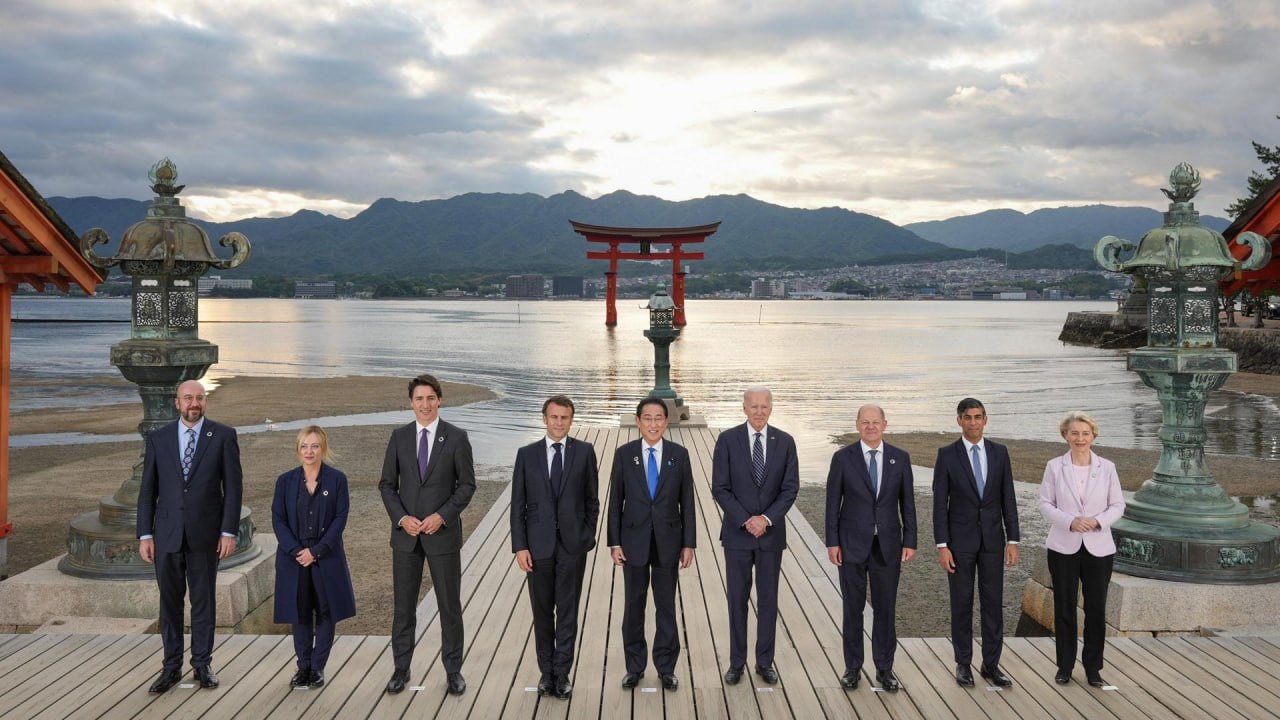
G7 Pledges $420 Million for African Infrastructure as Adesina Criticizes Resource-Backed Loans

Leaders of the G7, an informal group of seven advanced economies and some of Nigeria’s key trading partners, have pledged a $420 million investment to enhance infrastructure in Africa. The G7 includes Canada, France, Germany, Italy, Japan, the United Kingdom, and the United States, along with the European Union (EU).
At its 50th summit in Italy, themed “G7 Partnership for Global Infrastructure and Investment,” the G7 leaders endorsed commitments of $100 million and $320 million from partners to address Africa’s infrastructure and development needs through private sector engagement.
The leaders agreed to back flagship projects to develop transformative economic corridors to improve quality infrastructure and investments across Africa, the Middle East, and Europe.
Today, Italy joined US and EU efforts to promote sustainable development along the Lobito Corridor committing to strengthen collaboration and mobilise an additional aggregate contribution of up to $320 million in investment to support core rail infrastructure and related side projects, to create synergies with the Alliance for Green Infrastructure in Africa (AGIA), the group stated.
The Co-chairs welcomed the Africa Green Industrialisation Initiative (AGII) as a key platform for collaboration on infrastructure investment in Africa and celebrated the Global Energy Alliance for People and Planet (GEAPP) commitment of up to $100 million in philanthropic catalytic investment capital to unlock an additional $1 billion in private finance.
Led by the African Development Bank (AfDB) and the African Union Commission (AUC), AGIA aims to generate, finance, and execute projects with the private sector, catalysing up to $10 billion in green infrastructure opportunities for private sector investment.
Addressing Africa’s energy scarcity, the G7 said: “We recognise that universal access to affordable clean energy is crucial for sustainable, resilient, and inclusive economic growth and social development, as emphasised by the 2030 Agenda for Sustainable Development and the African Union’s Agenda 2063. It also contributes to meeting the climate goals of the Paris Agreement and to keeping the temperature limit of 1.5C within reach.
Africa’s significant but largely untapped clean energy potential requires massive investments. We will work to accelerate investments in clean energy sources to ensure an inclusive transition that supports energy security, acknowledging that a substantial proportion of people in Africa still lack reliable access to electricity and clean cooking. We look forward to the launch of the G7’s ‘Energy for Growth in Africa’ initiative and to contributing to its success. The initiative will help develop bankable clean energy projects, attract private capital through the catalytic use of public finance and technical assistance, encourage the flow of concessional finance, and overcome barriers to investments in clean energy across Africa, the group added.
The G7 emphasised collaboration with governments, the private sector, financial institutions, multilateral development banks, and community groups, coordinating with existing programs to ensure complementarity and avoid duplication.
Meanwhile, AfDB President Adewumi Adesina, in an interview with Reuters in London, criticised resource backed loans where African countries promise to supply oil, gas, or metals in return for money, often on undisclosed terms as a detrimental practice.
“It is an approach some have used to secure funding from China and other countries, banks, and commodity firms. If somebody has a liquidity challenge, it doesn’t mean you should pawn your assets,” Adesina stated, condemning the providers of such loans. “It’s like scavenging! Financial scavenging to take advantage of the desperation of countries. It’s not about any particular country or institution; it is a fundamental issue. I think it is a disaster for Africa.”
Adesina also highlighted the need to recognise the economic and environmental value of Africa’s savannahs, rainforests, rivers, and oceans, estimating them to be worth at least $6.8 trillion. He mentioned that the AfDB aims to recalibrate the continent’s Gross Domestic Product (GDP) to include these natural assets, noting that the Congo Basin, for example, is the world’s most significant carbon sink, surpassing the Amazon.
Read more: 2025 Grammy Awards: No New Categories, But 10 Rule Tweaks
About The Author
Related Articles
AES Condemns Niamey Airport Attack, Warns of Coordinated Destabilisation
The Alliance of Sahel States has strongly condemned the armed attack on...
ByWest Africa WeeklyFebruary 2, 2026Mali Cedes Strategic Land to Guinea to Deepen Trade Cooperation
Mali has approved the transfer of a strategic parcel of land to...
ByWest Africa WeeklyFebruary 2, 2026Senegal to Appeal CAF Sanctions After AFCON Final Controversy
Senegal has announced plans to formally appeal the sanctions imposed by the...
ByWest Africa WeeklyFebruary 2, 2026Burkina Faso Takes Legal Step Toward Nuclear Energy Development
Burkina Faso has voted to join the Vienna Convention on Civil Liability...
ByWest Africa WeeklyFebruary 2, 2026











